Top 10 Greatest Explorers of All Time
The greatest explorers of all time: incredible personalities, intrepid spirits who've left footprints on the highest peaks, reached into the deepest seas, trekked through the thickest jungles, and sailed the vast, open oceans.Just think about what exploration means. It's about pushing boundaries, seeking new horizons, and daring to venture into the unknown. From mapping uncharted territories and making contact with diverse cultures to achieving scientific breakthroughs and fostering global exchange, these explorers truly redefined our understanding of the world.
Who do you think deserves the crown for the greatest explorer of all time? Imagine having a dinner party with all these trailblazers; who would captivate you with their tales? Would it be those who journeyed into the mysterious depths of the Amazon rainforest or those who braved the icy extremes of the poles? Or perhaps the astronauts who took a 'giant leap for mankind' and ventured beyond our world?
 Making the "giant leap for mankind," Armstrong etched his name in history as the first human to set foot on the lunar surface during NASA's Apollo 11 mission in 1969. A seasoned test pilot and astronaut, he led a distinguished career that forever transformed our relationship with space.
Making the "giant leap for mankind," Armstrong etched his name in history as the first human to set foot on the lunar surface during NASA's Apollo 11 mission in 1969. A seasoned test pilot and astronaut, he led a distinguished career that forever transformed our relationship with space.
 This Genoese explorer, under the auspices of the Spanish Crown, embarked on an ambitious voyage in 1492. His journey led to the inadvertent discovery of the Americas while seeking a western route to Asia, marking a significant turning point in global history and European exploration.
This Genoese explorer, under the auspices of the Spanish Crown, embarked on an ambitious voyage in 1492. His journey led to the inadvertent discovery of the Americas while seeking a western route to Asia, marking a significant turning point in global history and European exploration.
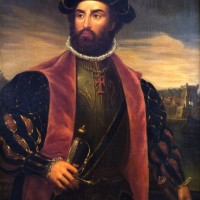 This Portuguese explorer, in the late 15th century, became the first European to reach India by sea, navigating around Africa's Cape of Good Hope. His voyages opened new avenues of trade between Europe and the East, thereby reshaping the economic landscapes of the time.
This Portuguese explorer, in the late 15th century, became the first European to reach India by sea, navigating around Africa's Cape of Good Hope. His voyages opened new avenues of trade between Europe and the East, thereby reshaping the economic landscapes of the time. He traveled in the huge "sea", with his crew, from Lisbon (Portugal) to Goa (India) and he did that in the 15th century, in a "wood boat".
Ps: Columbus in fact wasn't a great navigator... His mission was also to discovery the "maritime path to India" and he failed it, he just got the luck to find another place on his travel.
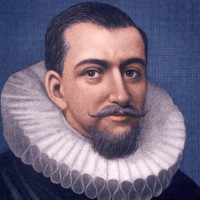 Venturing into the unknown in the early 17th century, Hudson, an English explorer, sought a northerly passage to the Orient. His explorations primarily around Northeast Canada and present-day New York left an enduring legacy, including the Hudson River named in his honor.
Venturing into the unknown in the early 17th century, Hudson, an English explorer, sought a northerly passage to the Orient. His explorations primarily around Northeast Canada and present-day New York left an enduring legacy, including the Hudson River named in his honor. Henry Hudson is by far the best explorer. He should have a holiday instead of Columbus. It's just a fact. I don't care what all you columbians say, Columbus is a terrible explorer, he discovered America by accident.
Discovered so much water the that he has more named after him in the world
 This Venetian merchant traveled the Silk Road to the farthest reaches of Asia in the late 13th century. His detailed chronicles opened up the unfamiliar Orient to Europe, impacting future generations of explorers and mapmakers.
This Venetian merchant traveled the Silk Road to the farthest reaches of Asia in the late 13th century. His detailed chronicles opened up the unfamiliar Orient to Europe, impacting future generations of explorers and mapmakers.
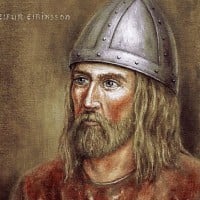 This intrepid Norse explorer ventured westward from Greenland, leading what is believed to be the first European expedition to North America, specifically present-day Canada, around 500 years before Columbus, a testament to his adventurous spirit.
This intrepid Norse explorer ventured westward from Greenland, leading what is believed to be the first European expedition to North America, specifically present-day Canada, around 500 years before Columbus, a testament to his adventurous spirit.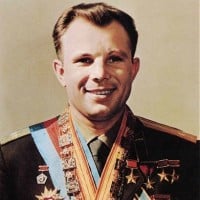 Rocketing into the annals of history, Gagarin, a Soviet cosmonaut, became the first human to orbit Earth in 1961 aboard Vostok 1. His pioneering journey, lasting 108 minutes, ushered in a new era of space exploration and solidified his status as a global icon.
Rocketing into the annals of history, Gagarin, a Soviet cosmonaut, became the first human to orbit Earth in 1961 aboard Vostok 1. His pioneering journey, lasting 108 minutes, ushered in a new era of space exploration and solidified his status as a global icon. Why it's so low?! He's was 1st in space! Without him even Armstrong don't get to the moon!
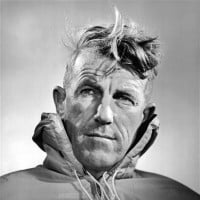 This New Zealand mountaineer and adventurer, along with Tenzing Norgay, ascended to the highest point on Earth by summiting Mount Everest in 1953. His extraordinary feat established a new zenith in high-altitude mountaineering.
This New Zealand mountaineer and adventurer, along with Tenzing Norgay, ascended to the highest point on Earth by summiting Mount Everest in 1953. His extraordinary feat established a new zenith in high-altitude mountaineering.
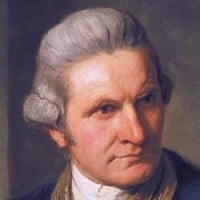 This British navigator and explorer charted numerous Pacific islands in the 18th century, including Hawaii, New Zealand, and the eastern coast of Australia. His accurate maps and meticulous record-keeping significantly advanced the understanding of the Pacific region.
This British navigator and explorer charted numerous Pacific islands in the 18th century, including Hawaii, New Zealand, and the eastern coast of Australia. His accurate maps and meticulous record-keeping significantly advanced the understanding of the Pacific region.
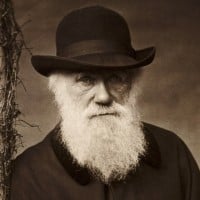 Aboard the HMS Beagle, this British naturalist journeyed to the Galápagos Islands and other regions, where he made observations that culminated in the development of the theory of evolution by natural selection, revolutionizing the world of biology.
Aboard the HMS Beagle, this British naturalist journeyed to the Galápagos Islands and other regions, where he made observations that culminated in the development of the theory of evolution by natural selection, revolutionizing the world of biology.
One of Canada's first explorers.
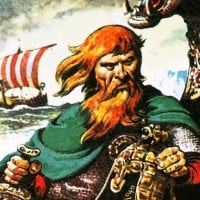 An audacious Norse explorer, Erik the Red established the first Norse settlements in Greenland in the late 10th century. His exploratory initiatives laid the groundwork for further Norse exploration in the North Atlantic.
An audacious Norse explorer, Erik the Red established the first Norse settlements in Greenland in the late 10th century. His exploratory initiatives laid the groundwork for further Norse exploration in the North Atlantic. Edward Teach, better known as Blackbeard, was a notorious English pirate who operated around the West Indies and along the eastern coast of the American colonies during the early 18th century. Despite his infamous reputation, his explorations contributed to our understanding of the sea routes of the time.
Edward Teach, better known as Blackbeard, was a notorious English pirate who operated around the West Indies and along the eastern coast of the American colonies during the early 18th century. Despite his infamous reputation, his explorations contributed to our understanding of the sea routes of the time.
The best explorer in history. How did he manage to walk from Morocco to Saudi arabia and then all the way to Russia followed by China and then to sail all the way to Tanzania before walking all the way back to Morocco
Seriously... Google this guy, enough said.
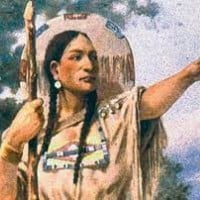 An invaluable guide and interpreter for the Lewis and Clark expedition, Sacagawea, a Lemhi Shoshone woman, facilitated the expedition's passage through the American West to the Pacific Ocean in the early 19th century, significantly aiding the expansion of the United States.
An invaluable guide and interpreter for the Lewis and Clark expedition, Sacagawea, a Lemhi Shoshone woman, facilitated the expedition's passage through the American West to the Pacific Ocean in the early 19th century, significantly aiding the expansion of the United States.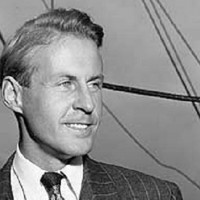 A Norwegian adventurer and ethnographer, Heyerdahl is known for his Kon-Tiki expedition in 1947. He and his crew sailed across the Pacific Ocean in a hand-built raft, demonstrating the possibility of ancient trans-oceanic contacts between distant civilizations.
A Norwegian adventurer and ethnographer, Heyerdahl is known for his Kon-Tiki expedition in 1947. He and his crew sailed across the Pacific Ocean in a hand-built raft, demonstrating the possibility of ancient trans-oceanic contacts between distant civilizations.Explorer and pirate, what a combo!
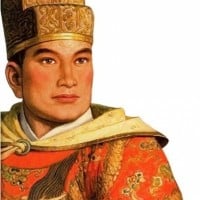 Commanding the largest wooden ships ever built, this Chinese explorer and admiral undertook seven voyages in the early 15th century that reached as far as Africa. Zheng He's journeys significantly enhanced the prestige of the Ming Dynasty and fostered diplomatic and trade relationships.
Commanding the largest wooden ships ever built, this Chinese explorer and admiral undertook seven voyages in the early 15th century that reached as far as Africa. Zheng He's journeys significantly enhanced the prestige of the Ming Dynasty and fostered diplomatic and trade relationships.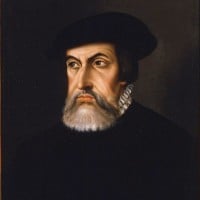 The Spanish conquistador is most known for his audacious expedition that led to the fall of the Aztec Empire in the early 16th century. His explorations in Mexico played a crucial role in Spain's colonization of the New World.
The Spanish conquistador is most known for his audacious expedition that led to the fall of the Aztec Empire in the early 16th century. His explorations in Mexico played a crucial role in Spain's colonization of the New World.